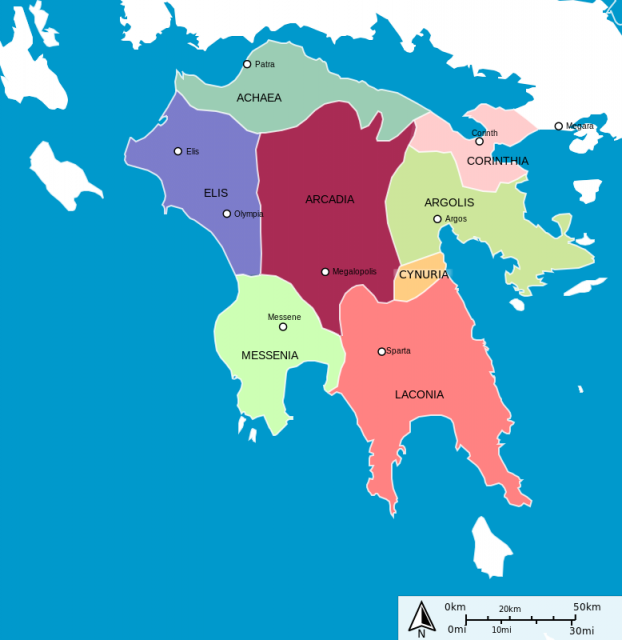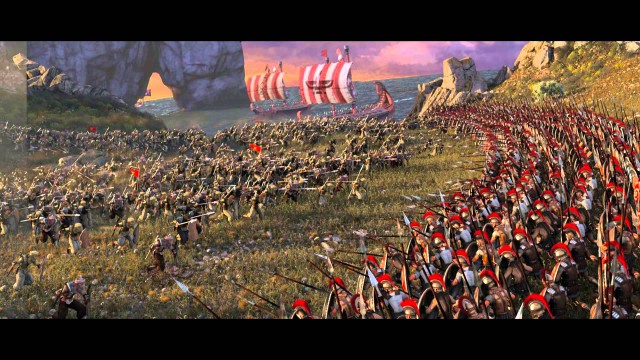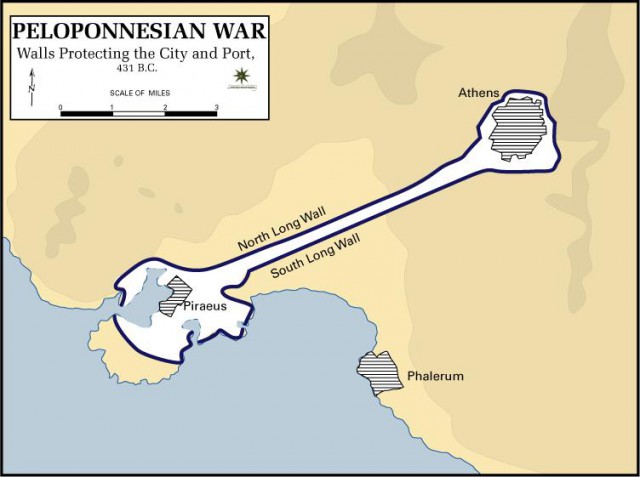The Spartans resided in the large Peloponnese Peninsula of Greece, far inland and among the mountains. With no real need or a suitable location for a navy, the Spartans focused on their land army. As Sparta grew in power, they sought power over their neighbors. One such neighbor was the city of Argos, with their reputation for outstanding warriors.
When the two sides clashed, they agreed to fight a battle with 300 champions from each army. The two sides fought nearly to the death. Two Argos champions survived and left the battlefield but they did not see a wounded but alive Spartan, who remained and claimed a Spartan victory. The Argives were enraged that the Spartans claimed victory and set their army to invade Sparta. The two armies met at full strength minus their champions, and the Spartans prevailed, gaining large amounts of territory and having a slight hold over the Argives.

One of Sparta’s earliest mistakes was not arriving at the battle of Marathon in time. The decisive victory over the Persians by the Athenians was seen as a glorious defense of all things Greek and elevated the status of the already powerful city of Athens. Athens quickly became a rival power with their growing territory in Attica, across the Isthmus of Corinth from Sparta. By the time of the second Persian of Xerxes, Athens and Sparta were both solidified as the premier naval and land powers of Greece.
When Xerxes invaded with a large army and navy, the Greeks largely worked together to neutralize the threat. The famous stand at Thermopylae was a major defensive effort and heroically led by the Spartans. After the Persians had won the hard-fought battle of Thermopylae, they moved down into the plains of Attica near Athens. The Athenians were forced to abandon their city and were helpless as it was almost completely destroyed by the Persians.
Soon after the capture of Athens, the Persians were led into a naval trap where the Athenians and allies won a great victory near the island of Salamis. Though the naval victory was massive there was still a large Persian land army that needed to be dealt with, and at Plataea, the Greeks, under the command of Spartans won a great victory. The victory at Plataea coincided with a naval victory at Mycale, which was also led by a Spartan. With these victories, the Persians were forced out of Greece for good, and the Greeks could revert their focus inward.

The two great cities were perfect rivals in everything from military power, politics, territory and overall culture, so it was almost inevitable that they went to war in the 5th century BCE. The Peloponnesian War(s) were some of the most violent conflicts in Greece. Greeks had often fought each other but this time, one-half of Greece was attacking the other. The Athenians sought to protect their tribute paying allies with their powerful navy while the Spartans largely focused on simply marching to Athens.
The Spartans would lose land battles, but also win naval battles during the long war. Spartan land forces were able to win victories to such a degree that they freely marched up to the walls of Athens, but they could not breach them, nor could they cut supply from the walled port. The stalemate was broken when the Spartans were able to win a great naval victory at Aegospotami that allowed them to completely encircle Athens on land and sea. This occurred after a terrible plague in Athens and a failed Athenian expedition to Sicily and finally forced Athens to surrender.

The battle of Leuctra was the first evenly matched large scale battle that the Spartans had lost, and legendary power of the Spartans faded with their loss. The Helots, who outnumbered Spartan citizens at least 5 to 1, revolted several times causing the Spartans to use what little Spartan warriors they had left to subdue the revolts. The Spartans would remain a regional power for generations, but their martial skill kept their reputation intact long after they fell to the Romans.

Δεν υπάρχουν σχόλια:
Δημοσίευση σχολίου